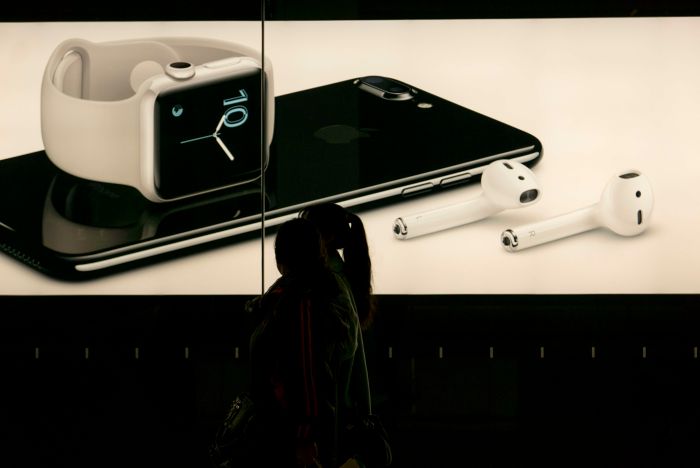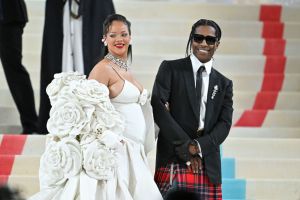
Source: Zhang Peng / Getty
Teen Sues Apple, Accusing Them Of Using Facial Recognition To Falsely Arrest Him
One teen from New York is coming after Apple for $1 billion after being falsely accused of product theft.
According to Fox 5, Ousmane Bah, 18, is claiming Apple’s facial recognition system falsely connected him to a series of thefts at their East Coast stores, which sell the facial recognition technology. His arrest and court cases have caused him a missed midterm exam, hours of traveling to different states, and just straight up humiliation, according to his lawsuit.
In the federal suit filed in New York on Monday, Bah names Apple in Cupertino, CA and Security Industry Specialists in Culver City, CA as the defendants. An Apple spokesperson has denied that the company uses facial recognition technology in their stores, according to Fox 5. Meanwhile, the real thief of the Apple products has yet to be captured.
Bah was charged in multiple jurisdictions, including Delaware, New Jersey, Massachusetts, and New York, according to his lawsuit. Three of his cases have been dropped, while the one in Jersey is still pending.
Video of one of the thefts served as proof that the culprit didn’t look anything like Bah.
“We believe the video clearly exonerates Mr. Bah and puts the onus on Apple to answer how did they identify my client as the perpetrator of a crime if they weren’t using facial recognition,” Bah’s attorney, Subhan Tariq said.
In his suit obtained by Fox 5, Bah says that his interim learner’s permit, which doesn’t have a photo, had either been lost or stolen and that his ID might have been presented at an Apple store. This would have connected his name with the thief’s face in the company’s security system, meaning every time the perpetrator walked into an Apple store, his face would register as Bah.
However, the suit pointed out that there were clear discrepancies in the suspect’s height in the surveillance video of one of the thefts and the height printed on Bah’s interim permit in one of the cases. Apple just “accepted the information on the permit as true and ignored the possibility that a misidentification had been made due to human error,” read the suit. Bah’s attorney provided video of a May 31, 2018 theft inside a Boston Apple store, showing video of the alleged suspect, who appears much shorter than Bah.
Bah was in high school at the time the thief, or thieves, ripped off Apple stores in Delaware, New Jersey, and Manhattan, yet he was blamed for the thefts, reads the suit. It’s not known if the guy in the Boston surveillance video is also tied to the thefts at the other East Coast stores.
Bah only found out about the mix-up when he received a Boston municipal court summons in the mail in June 2018, according to court documents. Bah says he’s never been to Boston before and he was at his senior prom in Manhattan on the day in question.
Tariq wrote in his suit that Bah is a “good kid” who had no prior criminal records and is a young man who “highly values his reputation and education.”
Then, in November 2018, the NYPD arrested Bah for a $1,200 larceny theft of mostly high-tech pencils at a Manhattan Apple store. The suspect photo didn’t even resemble Bah, but the cops “nevertheless executed it.”
“This arrest left Mr. Bah, who had never been in trouble with the police, feeling humiliated, afraid and deeply concerned,” the suit reads. He was also arrested the morning he was supposed to take a midterm, and he ended up doing poorly on the exam once he took it. Eventually, after his arrest, an NYPD detective realized that Bah didn’t look like the thief featured in the Apple surveillance video. The detective also inferred that the person who committed the crimes must’ve presented Bah’s stolen interim permit as ID during one of his various offenses.
Apple has replaced their fingerprint touch ID with facial recognition since 2017, the suit points out, but errors do occur, and once Bah was connected to the wrong face, his lawyer wrote that he had “no recourse to correct the error.”
“When a name is mismatched to a particular face,” the suit says, “the security benefits the Face ID software become a criminal’s weapon.”








Comments
Bossip Comment Policy
Please read our Comment Policy before commenting.